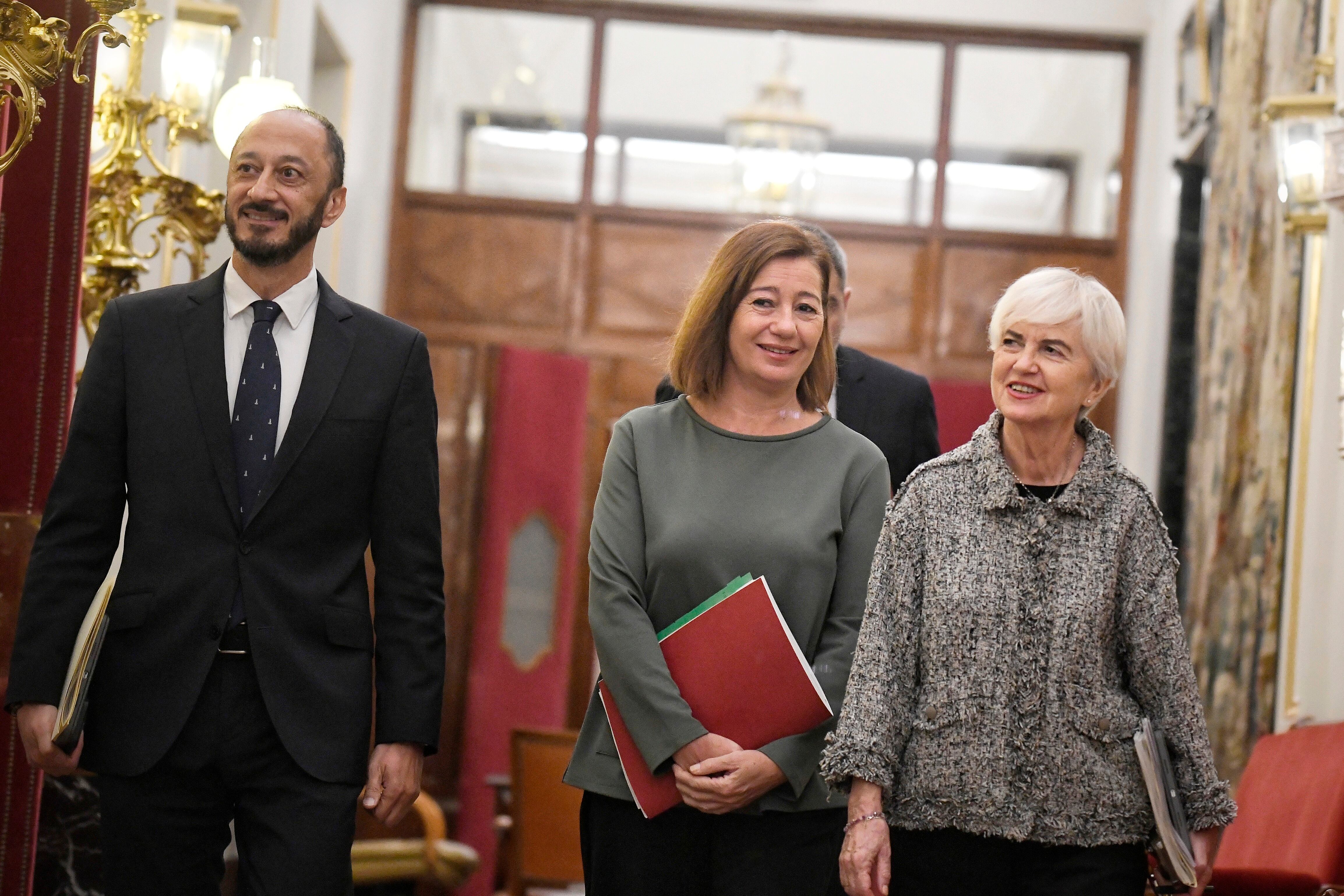
PP and Vox will remain without correcting their vote in favor of the law on the exchange of criminal records in Europe, which will allow some ETA prisoners reduce prison time served in other countries from their sentences. The Congress Board will ratify this Tuesday the agreement made last week do not put the matter up for debate againcontrary to what the Senate intended. The governing body of Congress understands that the upper house, with an absolute majority of the PP, missed the legal deadline to present a veto of the law. The legal services of the Lower House flatly reject the arguments of their colleagues in the Senate, who sought to validate as if it were a veto a vote against the law held in the plenary session already outside the legal period.
The agreement of the Congress Board on the 15th, contrary to reopening the issue, was “fully in accordance with the law,” according to a report from the legal services to which EL PAÍS has had access. Therefore, the Lower House “has fulfilled its constitutional and regulatory obligations” by deciding to send the text of the law to the Presidency of the Government for publication in the BOE.
When last day 7 The Confidential published that the law could reduce the prison stay of some ETA members, the project was already in the Senate. Congress had approved it unanimously on September 15 as a transposition of European regulations. The PP, which claimed that he had supported the text by mistakefound itself without room for maneuver in the upper house, where it has an absolute majority. The popular party had let the deadline pass to present amendments and a veto, the legal means to return a text to Congress. However, the bill was submitted to the plenary session on the 14th. And, by an absolute majority, it was declared contrary to its content. That same day, the president of the Senate, the popular Pedro Rollán, presented a surprise report from his lawyers that equated the vote held with a formal veto and returned the text to Congress to delay its entry into force.
The Lower House Board, with the endorsement of its legal service, rejected the reopening of the issue the next day. This Tuesday he will ratify the decision with the majority of the PSOE and Sumar, in view of a more complete report from the lawyers that demolishes the arguments of his Senate colleagues. This report insists that the rejection of the plenary session of the upper house cannot be considered a veto and argues that not even the lawyers of that second arm of the Cortes refer to it that way, but rather argue that, since it was approved by an absolute majority, is equivalent.
Even if this were the case, congressional lawyers argue, the Senate’s rejection also occurred outside the period of 20 “calendar” days—that is, counting holidays—established by the Constitution to rule on matters that, as is the case, the Government declares urgency. To try to avoid this precept, the Senate’s legal services do their own accounting. They point out that “it has been common” to start counting the procedures not from the day a project arrives – September 20, in this case – but from the day it is published in the Official Gazette of the Chamber – on the 23rd. The Constitution It clearly establishes in its article 90.2 that the time runs “from the day of receipt of the text.”
Even accepting that way of counting it, the legal services of Congress emphasize, the deadline would have expired on Sunday the 13th, when the full Senate voted on the 14th. There the Upper House introduces a new caveat: Sunday should not be counted. “There is no provision in the Senate Regulations,” reply the legal services of Congress, “that allows the 20 calendar days referred to in Article 90.3 of the Constitution to be converted into 21 simply because the 20th coincides with a holiday.” And it highlights that Congress has even met on non-working days so that some constitutional deadline does not expire. The PP now threatens raise a conflict of powers between the two Chambers before the Constitutional Court.

